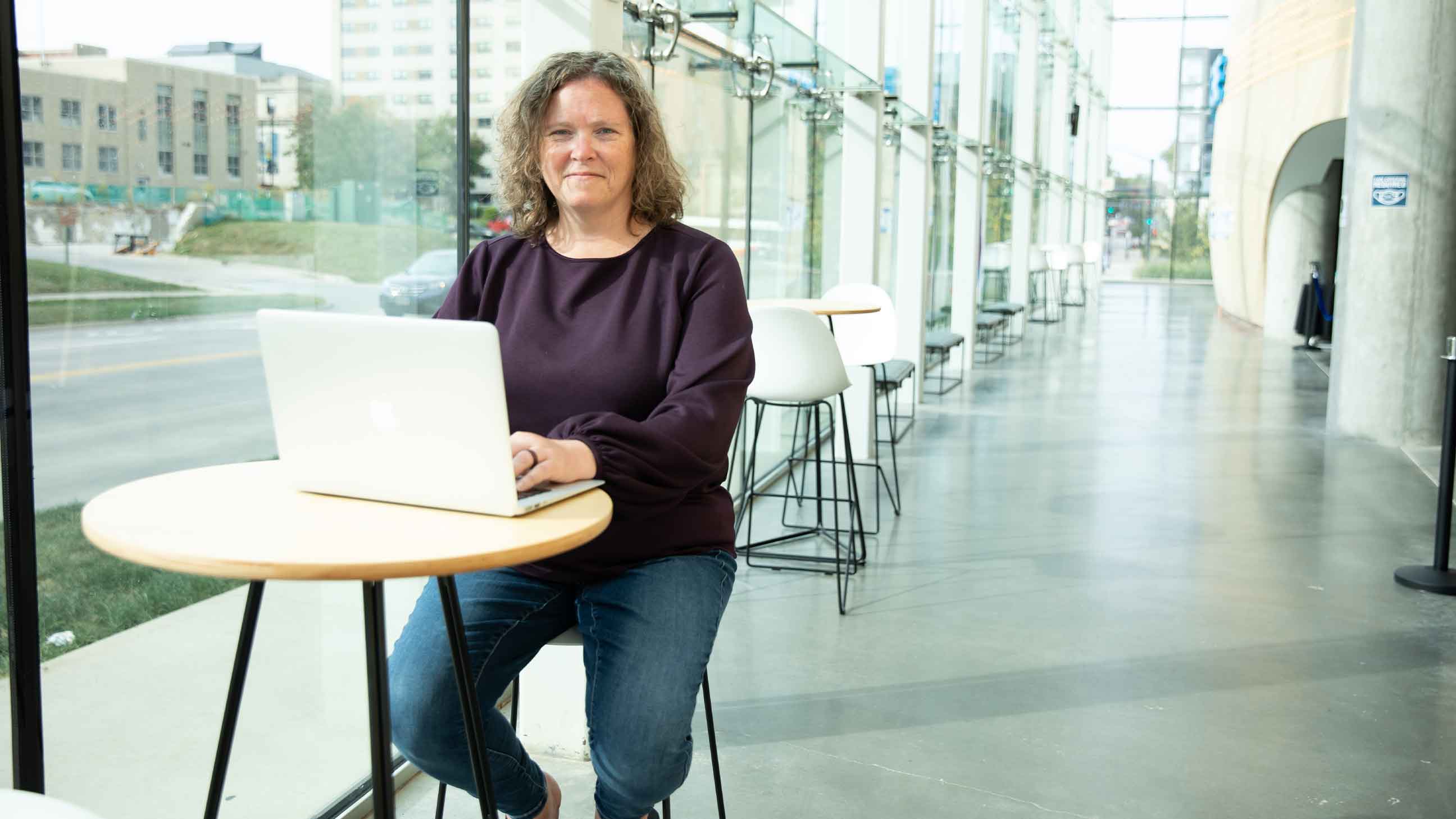
Ann McGlynn used her Iowa MBA to help others grow by founding Tapestry Farms, a non-profit urban farm system that invests in refugees in the Quad Cities.
When Ann McGlynn started her Iowa MBA program, this self-described “creative-type” wasn’t sure exactly how she'd use her degree. She knew she needed business skills to move forward. But even with the support of her family, she wondered if an MBA was the right move at the right time.
“At times I thought I was ridiculous to spend the money and the time, not knowing exactly what I could do with it.”
But those worries faded when she discovered a passion for helping refugees that led to the founding of Tapestry Farms, a non-profit urban farm system that invests in refugees.
Debating a degree
Initially uncertain whether to go the MBA route, or lean into a master’s in social work, Ann chose the Iowa MBA for its flexibility and convenience.
“I always knew I wanted a master’s degree—and the Iowa MBA was the best fit for my life and my professional goals."
Because she had a full-time job and a full-time family life, Ann appreciated that she could take just a class or two at a time.
“Most years I took three classes,” she explains. “It took 5 ½ years for me to finish, one class at a time, in the evenings.” With both financial and childcare support from her mom and dad, and even her ex-father in law, Ann was able to make time for her MBA.
From full-time employee to non-profit founder
While still in the program, Ann took a full-time role as Director of Communication with a local church that soon welcomed a family of seven from the Democratic Republic of Congo through a partnership with World Relief. The goal was to help the family resettle in the community, but it was clear the barriers were significant.
“People who live in refugee camps might live in mud huts and carry water every day. Some don’t have access to school. Imagine coming to the U.S., where you don’t know the language, you might have medical issues … the trauma of being resettled is off the charts,” she explains.
When the family’s oldest daughter brought her a bowl of spinach they’d grown in their backyard, Ann had her lightbulb moment.
“I knew that refugees bring skills and talents with them that can be very valuable—and a lot of those surround growing food,” she says.
The idea for Tapestry Farms was born: an urban farm that gives refugees a role in the local economy and connection with available resources. Soon after, Ann filed the paperwork to incorporate as a nonprofit in the state of Iowa—and the first post-resettlement agency in her area.
“It’s hard starting and building a successful nonprofit. You have to know a lot of things. And that’s what an MBA does—it teaches you a lot of things about running an organization successfully.”

“Now I use my MBA every single day of my life."
Growing confidence and community
On five plots of land, refugees cultivate their fruit, vegetables, herbs, and flowers, and sell CSA (community supported agriculture) shares. Half of their customers are people who can afford their own shares, and half are families who live with limited incomes. These shares are purchased by Community Action of Eastern Iowa on their behalf.
As the anticipated number of refugees resettled in the area grows, Ann is looking to expand operations. She hopes a central location close to where refugees live will provide office space, temporary apartments, and a farm operations area.
For Tapestry Farms, growing brighter futures for the Quad Cities’ refugee population remains the central goal.
“Working on a farm is physically labor-intensive, but at the same time we work on job skills they can take with them after their time with us. We’re building not only their physical health but also their emotional and mental health,” she explains. “We focus intensely on building them up.”